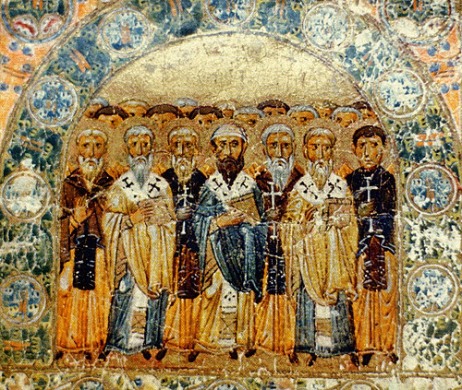 |
| Anscar Vonier 2nd Abbot at Buckfast |
SAINT MICHAEL AND ALL ANGELS
Feast.
Feast.
29 September 2015
Gospel Mass John 1:47-51
Alternative Reading
From The Angels by
Anscar Vonier (pages 84-89)
It is evident by all the laws of spiritual life that angelic beings must be,
in one way or another, a great element in the constitution of man's eternal happiness.
The bliss of the elect will be essentially this - to possess all truth, to be in
contact with all reality, to see all beauty. To see the angels, to behold them,
must of necessity constitute a source of happiness greater than anything which
the visible world could afford; in fact, it is the supreme created source of happiness;
God himself, clearly seen in the beatific vision, being the uncreated source of
happiness. To be with the angels, to see them in their glory, is a most legitimate
desire in the heart of man, and the saints of God have often given utterance to
such a longing. We must always keep alive within us that essentially Catholic
principle· of life, that the possession of the supreme Goodness, God himself, never
destroys the appetite for created goodness, but, on the contrary, enhances it; to
see God face to face produces in the minds of the elect a new capacity to see him
in his creatures, and where is he seen to greater advantage than in the world of
angels, which mirrors back, with an almost infinite power of radiation, the glory
of the invisible God? Moreover, through the communion of supernatural grace man
is allied to the angels by the bond of charity, he is not a foreigner but he is
a fellow-citizen. There will be this truest exchange of love between man
and the heavenly spirits: man, besides beholding the angels in their glory, will
hold intercourse with them as citizens of the same kingdom, as the children of the
same Father. This intercourse with the heavenly spirits will be the last thing
in created love; greater love than that there could not be except man's communion
with God himself.
There is, however, something deeper than this association with the angels in
vision and love. It is Catholic tradition that the elect of the human race are destined
to take the place of the fallen spirits, to fill up the gap made by the apostasies
of the rebellious angels. This tradition profoundly modifies man's relationship
to the angels; it puts him on a footing of equality with those mighty beings which
is the most astonishing of all spiritual exaltations.
That there will be more than mere association of men and angels in the glory
of eternity is clear from our Lord's words in speaking of the elect at the
resurrection: Neither can they die anymore: for they are equal to the angels
and are the children of God, being the children of the resurrection. This
equality is entirely based on grace. Human nature will always remain what it is,
vastly inferior to the angelic nature; but such is the power of grace that the inequality
of nature is bridged over, and an elect from the human race may truly become, in
all literalness of language, the equal of the highest angel.
Then again there are those human beings who will be absolutely superior by
the very laws of their predestination to every angelic order; the blessed Mother
of God is certainly one such creature.
The all-pervading principle is this: that grace is greater than nature, greater
even than the highest spirit nature, and its scope is vaster than the vastest world.
Details
First published in 1928, this book will satisfy that multitude of questions you have always had about angels and leave you with a happy closeness to those angelic friends of God and man. Subjects covered: Nature, life, sanctity of angels, guardian angels, evil spirits, and ....





